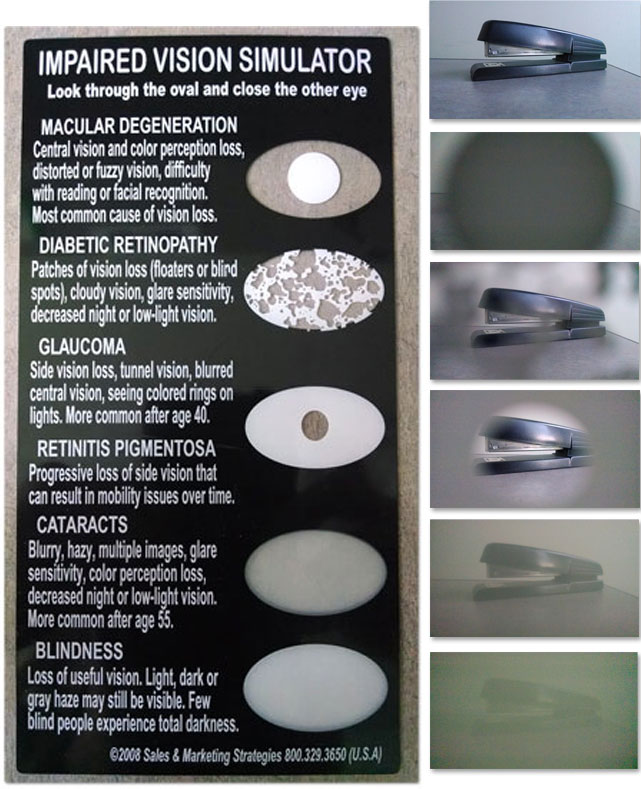Imagine if you woke up tomorrow with impaired vision. How would you get around, prepare dinner or get dressed? Then imagine trying to find meaningful employment.
Thankfully there are organizations like Bosma Enterprises. Bosma provides job training, employment services, rehabilitation and outreach programs for people from adolescent to to senior age. They’re also Indiana’s largest employer of people with vision loss, offering several products through diverse lines of business including health and safety items, printing, a contact center, warehousing and contract packaging, hearing aids, Independent Living Store, dry food packaging and Ice Melt.
Recently DirectEmployers had the privilege of sponsoring a joint event between IndySHRM and the Indiana Industry Liaison Group, which included a veteran & individuals with disabilities services fair. Bosma was in attendance and their exhibit had some fascinating material including an impaired vision simulator for macular degeneration, diabetic retinopathy, glaucoma, retinitis pigmentosa, cataracts and blindness. See for yourself how your vision would be impacted:

Sometimes businesses may question the ability to be competitive and accommodating when employing people with disabilities. Bosma has made nearly $50 million in revenue and expanded into two facilities – proof that employing people who are blind or visually impaired works.
Partners can help you understand requirements under Section 503 and help you identify reasonable accommodations to diversify your workforce. They also open the door for your company to connect with motivated and talented job seekers – as evident in the success stories on Bosma’s website.
This is reminiscent of the message from our DEAM14 keynote, John Robinson – people with disabilities are problem solvers. And as Secretary of Labor Tom Perez stated in his blog when announcing the new regs, “These new rules are a win-win. They will benefit veterans and people with disabilities, who belong in the economic mainstream of the nation but have faced unfair barriers in the job market. They will benefit employers who do business with the federal government, increasing their access to a large, diverse pool of qualified workers. And they will benefit the entire nation, as these rules help us fulfill the American promise of equal opportunity for all.”
DirectEmployers is constantly seeking out new partnerships to help connect our Members with these great organizations. For questions regarding current partnerships, contact Shannon Offord, Manager Strategic Partnerships at Shannon@DirectEmployers.org.

